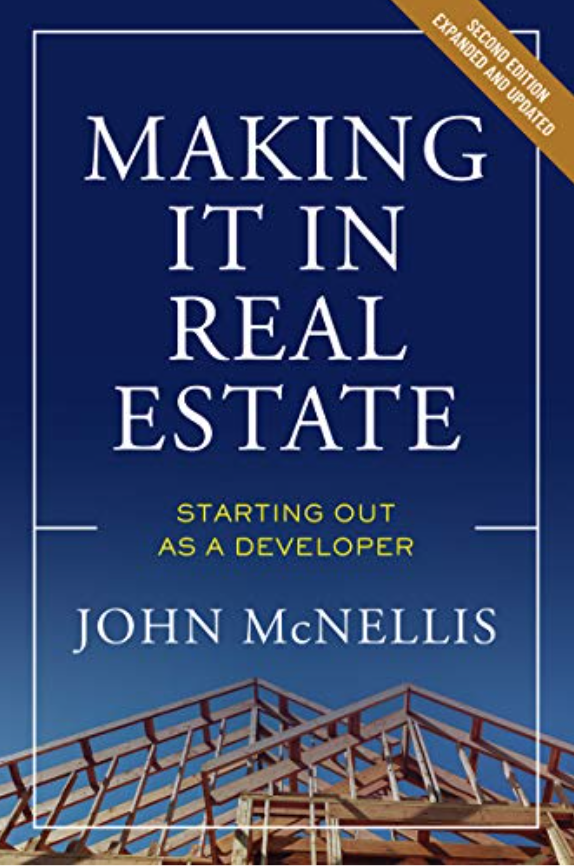In Rochambeau, paper beats rock. In life, paper sometimes beats deals.
We own a shopping center in a Sacramento suburb that we developed 25 years ago. At the beginning of the year, we earmarked this center and a couple other assets for sale. We listed it with a top brokerage firm, drifted through the tariff doldrums for several months and at last came to terms with a well-respected, publicly traded company that specializes in owning retail properties. In short, an ideal buyer for this property.
The buyer proposed a simple, straightforward letter of intent. We haggled a bit over the price and the free-look period, but were soon in agreement. Because we had gone into escrow to sell this asset some years ago, we had a fully negotiated contract with another professional buyer that appeared to need only minor adjustments—changing buyer, price and closing date—to work perfectly for this new sale. Thus, we offered to prepare the purchase contract, certain that the negotiated document would save everyone time, effort and expense. But as it happened, our transactions lawyer left for a vacation hours after we agreed upon the final terms.
My initial reaction was to bring in someone else to paper the deal, but then I looked at the old contract, remembered that I used to prepare such contracts for a living and decided what the hell, I’ll do it myself. So, as luck would have it, I read every word of this particular agreement. After reading it, I was sure our negotiations would be a piece of cake, that the contract was so fair and down the middle that even the most sophisticated buyer could have signed the contract as-is.
We sent the agreement to the buyer, hoping the company would use its in-house legal staff to review it. As an aside, we have found it easier to work with in-house legal than with the mega firms that so often represent the public companies in CRE. Why? Because in-house lawyers are not paid by the hour, they’re not paid to dream up—and then elaborately solve—issues with infinitesimal risk to their companies. Often overworked, in-house lawyers are paid to get the job done and move on to their next assignment. Out of necessity, they are careful with their time and practical with their comments. Also, in-house attorneys have typically done hundreds of versions of the same contract, and know—like their drive home—the handful of real issues and their common resolutions. They may even know that Hollywood has it about right, that once two principals shake hands on a price and general terms, the rest of the contract is eyewash, largely unnecessary between honest parties and not all that effective against the truly bad guys, no matter how draconian the contract’s terms.
If in-house legal is overworked, big firm lawyers are the proverbial overloaded donkey, a few straws of hay away from collapse. Under intense pressure to bill hours, fancy firm associates can make their in-house counterparts look like they’re unemployed.
Because our buyer’s legal department was apparently busy, it assigned the review of our contract to a prominent Los Angeles law firm. Ever optimistic, we looked forward to reviewing the buyer’s comments in a day or two, guessing it wouldn’t have more than a handful.
A week later our poor contract returned awash in red ink, bled out. The 35-page agreement—truly in signable condition beforehand—came back with over 300 changes. Yes, 300 + changes. Entire pages had been eliminated and completely rewritten. Virtually every paragraph in the contract had been modified in ways large and small. Our lawyer described the document’s mutilation as horrendous, while a partner called it egregious. We were sorely tempted to walk away from the transaction then and there, but in the end, agreed among ourselves to give it a go and accept as many of the requested revisions as we could without jeopardizing our position.
Our attorney redrafted the agreement, incorporating about half of the proposed revisions. Meanwhile, I called the buyer’s decision maker, strongly expressed our dismay over his attorney’s hatchet job and advised him that they could either accept our next draft as-is or shake hands and walk away from the deal. With this admonition, we sent them the contract. Two days later they said they couldn’t live with our revised agreement and sent us a fourth draft with further comments. We said adios.
In the past, I’ve jokingly compared architects to loaded .45’s in that they are useful if you know what you’re doing and capable of blowing your head off if you don’t. The same holds true for lawyers. Doubtless the young lawyer at this big firm had the best of intentions, and must have thought he was zealously protecting the buyer’s interest when he larded our contract with unnecessary guaranties, financial penalties and traps. Doubtless also, it was to his personal advantage to bill as many hours as he could on this assignment.
Because our negotiations with this buyer were—aside from my brief chat with the big boss—exclusively through our brokers, we have no idea whether this associate took it upon himself to fight over every semicolon in the agreement or was instructed to do so by his client. It may be that, as is often the case with big corporations and their fancy lawyers, both client and lawyer assumed they could steamroller us. They couldn’t. But blaming this associate for killing the deal is like blaming the hangman rather than the despotic king for a wrongful execution.
If you hire a white shoe law firm, you’re almost assured of getting a young associate to do the initial drafting of your contracts. That associate will likely be smarter than Einstein but may be lacking the experience (or the common sense) to know which issues truly present risks that need to be addressed. If you’re interested in deal making rather than legal bills, it would behoove you to instruct your lawyer as to exactly what level of review—of legal jousting—you expect. If you tell him to make sure the deal points are correct, that the agreement is generally fair, but not to sweat the small stuff, the contract negotiations have a fair chance of going smoothly. If you fail to give your lawyer guidance or instruct him to have at it, you run the risk of paper killing deal.
PS The next buyer, an even bigger corporation but with a different approach to deal making, took this same contract virtually as-is.






















